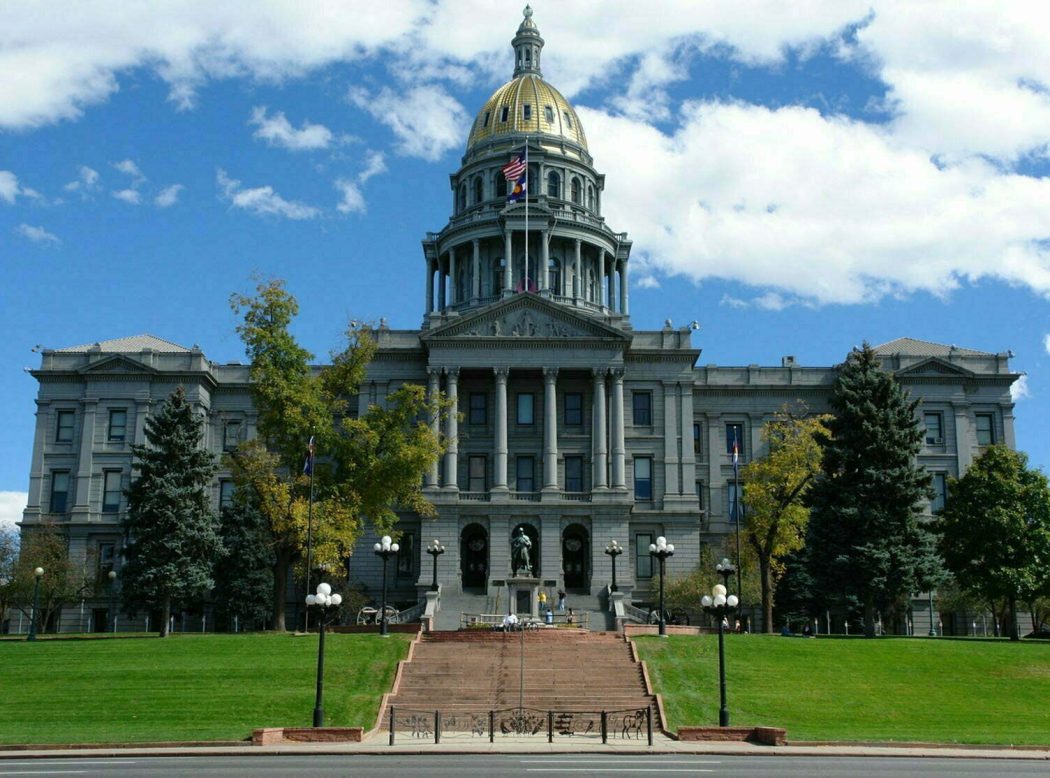 Background
Background
During the 2022 legislative session, SB22-219 was sponsored by Senators Dominick Moreno (D-Commerce City) and Jim Smallwood (R-Parker) and Representatives Monica Duran (D-Wheat Ridge) and Barbara McLachlan (D-Durango). The bill passed by votes of 32-3 and 42-22-1 in the Senate and House respectively. The bill was signed this summer with implementation processes beginning in January 2023.
Education and Licensure Requirements
To become licensed as a dental therapist in Colorado, an applicant must graduate from a school of dental therapy that is accredited by the Commission on Dental Accreditation (CODA), the same ADA-affiliated entity that accredits both dental and dental hygiene training programs. SB22-219 provides some very limited acceptance of degrees from candidates that graduated from now-accredited educational programs that served Minnesota and Alaska prior to the CODA accreditation being available. CODA accreditation standards for dental therapy functions in Colorado assumes a minimum of three academic years of full-time instruction.
A dental therapist’s educational curriculum must include instruction on all procedures within the dental hygiene and dental therapy scope of practice in Colorado, and the applicant must successfully pass clinical examinations that assess both dental hygiene and dental therapy clinical skills. If a dental therapy applicant has already completed a CODA-accredited dental hygiene training program in the past, they may count these curriculum hours toward advanced standing in the additional dental therapy degree, essentially allowing credit transfers or a stackable credential model. If a candidate’s graduation from an accredited dental therapy school was more than 12 months ago, they must meet continued competency requirements and show that they have been actively practicing or teaching dental therapy for at least one year in the previous five years.
A dental therapist must also receive 30 hours of continuing education every two years, consistent with requirements for dentists and dental hygienists.
Beginning May 1, 2023, Colorado may begin licensing dental therapists in the state. This initial licensing date assumes that the Colorado Dental Board has completed all required rulemaking, and that there are dental therapy candidates who have completed all required training to be qualified for Colorado licensure. Given education timelines, as well as the lack of existing training programs in Colorado, it is likely to be many years before dental therapists become a significant presence in the Colorado market.
Scope of Practice and Supervision Requirements
Dental therapists may only practice under a dentist’s supervision. Dental therapists are authorized to provide two tiers of tasks – a tier with heightened supervision and a tier with more relaxed supervision requirements.
In accordance with the more stringent supervision requirements, a dental therapist can perform the following tasks under the direct supervision of a dentist:
- preparing and placing direct restoration in primary and permanent teeth;
- performing brush biopsies;
- extracting periodontally diseased permanent teeth with mobility of +3 to +4, except for teeth that are unerupted, impacted, fractured or require sectioning;
- extracting primary teeth that are erupted or not impacted with radiological evidence of roots;
- conducting oral examination and evaluation for conditions and services that are within a dental therapist’s scope of practice and education;
- placing temporary crowns;
- preparing and placing preformed crowns; and
- repairing defective prosthetic devices.
After 1,000 preceptorship hours of direct supervision—the majority of which must be related to the procedures listed above, the dental therapist may perform the identified tasks under the indirect supervision of a dentist pursuant to the terms of a written articulated plan. If the supervising dentist is not comfortable with a dental therapist’s proficiency or with allowing the above procedures to be performed under indirect supervision, the supervising dentist may require additional hours under direct supervision or require increased supervision levels on an ongoing basis.
A written articulated plan to allow indirect supervision for the advanced procedures listed above must identify the methods of direct supervision, consultation, and approval; outline protocols for informed consent, quality assurance, and recordkeeping; detail policies for handling referrals when a patient needs services that the dental therapist cannot provide; specify protocols for assessment of dental disease and an individualized treatment plan; stipulate policies for handling medical emergencies; and articulate policies for supervising dental assistants and working with other dental staff. Dentists who supervise dental therapists must be available for timely communication whenever a dental therapist is engaged in providing care and must be within reasonable proximity of the patient care delivery site to help address a dental emergency. A dentist may not supervise more than three full-time equivalent (FTE) dental therapists, except that dentists in certain public health settings may supervise no more than five total FTE dental therapists. The Colorado Dental Board can promulgate rules for a waiver of this supervision limit, a process that mirrors an allowance for supervision waivers of dental hygienists utilizing the ITR procedure—a process which has yet to be utilized.
If a dental therapist has practiced as a licensed dental hygienist or as a licensed dental therapist in another state, the Colorado Dental Board may allow the dentist to waive up to 600 of direct supervision required for the advanced procedures outlined above. The dental board will be required to write rules about the waiver of any supervision hours, and a dentist will continue to have the authority to require additional hours of directly supervised practice prior to allowing the above procedures to be performed under relaxed supervision parameters.
Dental therapists are allowed to perform the following tasks under the indirect supervision of a dentist from the time of licensure (no preceptorship hours are required):
- any task or procedure authorized to be performed by a dental hygienist;
- reimplanting teeth;
- stabilizing reimplanted teeth;
- extracting primary teeth that are erupted or not impacted without evidence of roots;
- removing sutures;
- preparing dental study casts;
- administering local anesthesia only (after applying for and receiving a local anesthesia permit);
- dispensing and administering non-narcotic analgesic, anti-inflammatory, and antibiotic drugs within parameters of the written articulated plan and with authorization of the dentist.
Colorado Dental Board Membership
Beginning July 1, 2031, the Colorado Dental Board’s membership will change from seven dentists, three dental hygienists, and three members of the public to seven dentists, two dental therapists, two dental hygienists, and two members of the public. The CDA was successful in maintaining a majority of dentists on the reformulated dental board.
Miscellaneous
It is expected that dental therapists will pay a $150 fee for initial licensure. Dental therapists will be required to have professional liability insurance of at least $500,000 per incident and $1,500,000 annual aggregate, equivalent to liability coverage requirements for dentists. Dental therapists are excluded from the “Occupational Credential Portability Act,” which allows for someone who has a license from another state to come to Colorado and receive the same license. Dental therapists are subject to the same disciplinary procedures as dentists and dental hygienists (including actions up to termination of licensure) and may be fined up to $4,000 for noncompliance.
______________________________
Colorado Legislative Wrap-Up
The Colorado legislature heard 657 bills this year, passing well over 500 of them. Many bills directly impacted the dental profession—from millions of dollars for rural providers to the creation of the new dental hygienist peer assistance program.
The CDA worked on more than 50 bills for the profession this year. Read the full legislative wrap-up article online at cdaonline.org/2022COleg.


